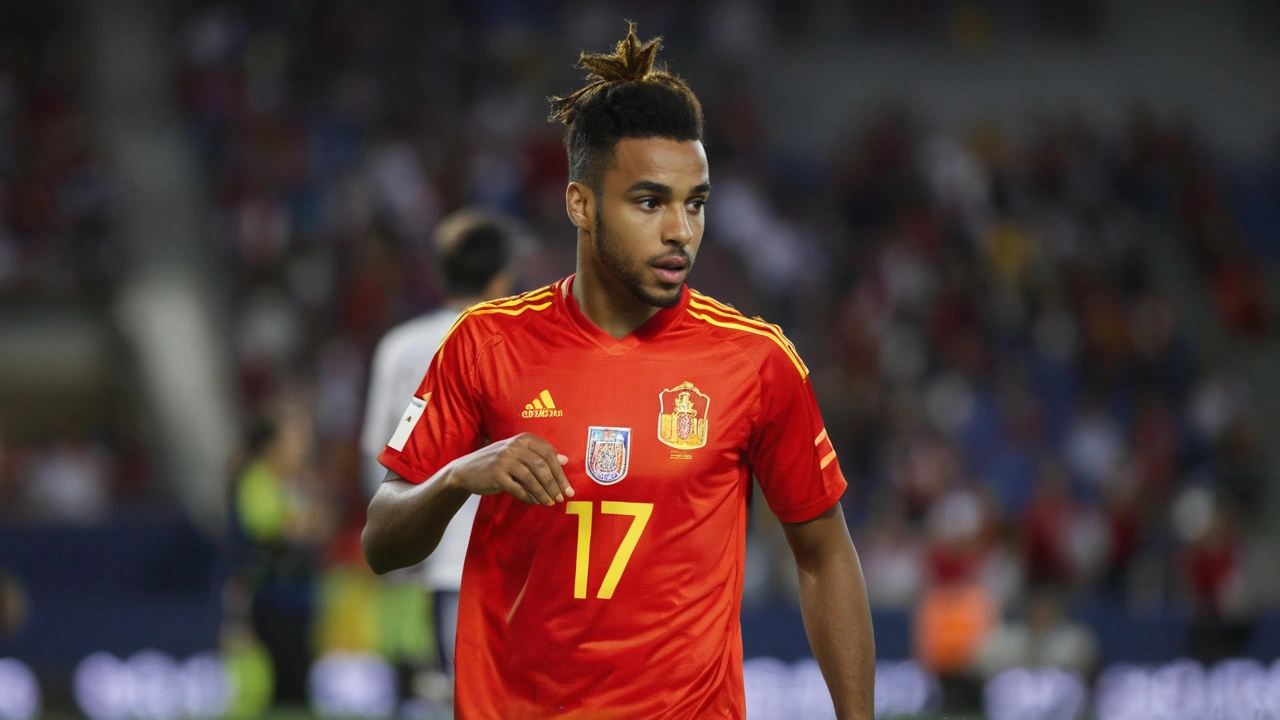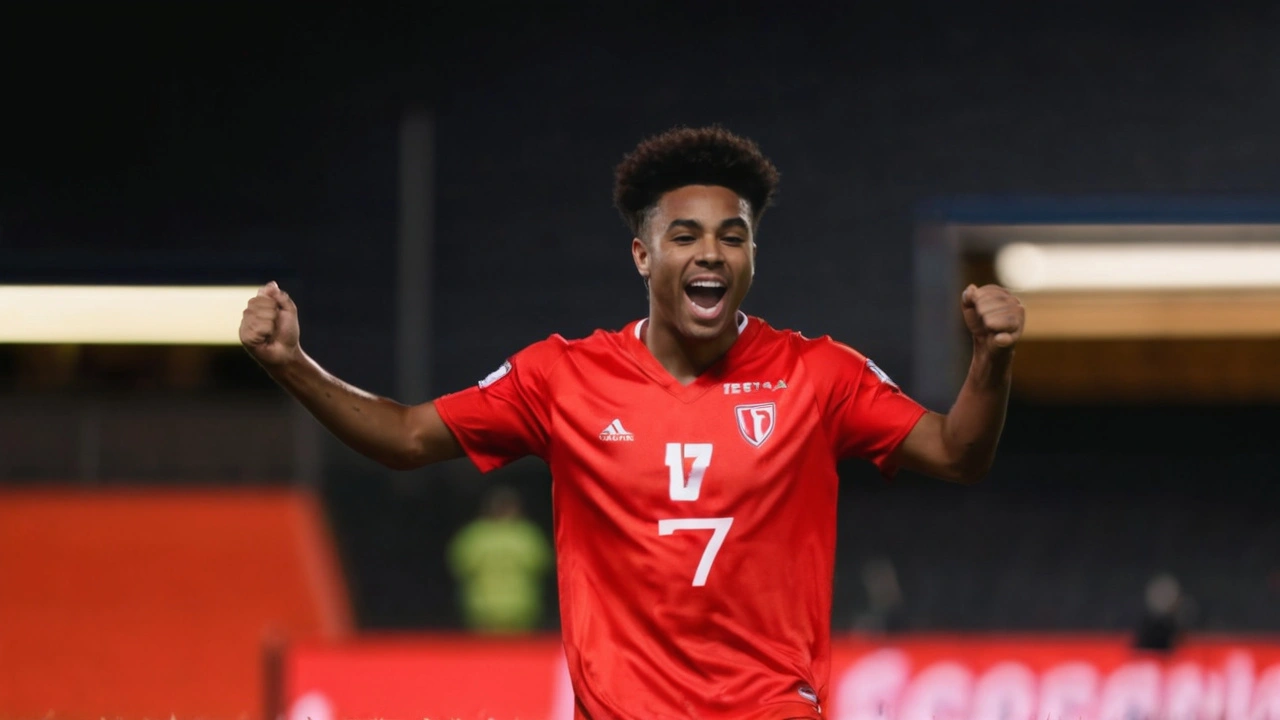Barcelona Transfer News: Challenges in Acquiring Nico Williams and Shifting Focus to Dani Olmo

Barcelona's Transfer Dilemmas: The Nico Williams Hurdle
Barcelona's summer transfer plans have hit a roadblock as their top target, Nico Williams of Athletic Club, seems increasingly out of reach. Despite Williams having a release clause set at €58 million, the financial situation at Barcelona is proving to be a significant obstacle. The club, struggling to stay within La Liga's imposed spending limits, finds itself in a precarious position where it needs to generate substantial cash either through transfers or new revenue streams to register new signings.
The financial constraints are not just a minor issue; they are critical and pressing. Barcelona's budgetary restrictions mean that even if they can manage to pay the release clause for Williams, registering him with La Liga remains a steep hill to climb. The urgency to reconfigure their financial landscape is further exacerbated by the recent non-payment from German company Libero for a stake in Barça Vision, which created a €40 million financial hole.
Adding to the challenge, Paris Saint-Germain's interest in Williams, combined with the player's inclination to stay at Athletic Club, provides substantial competition. The allure of remaining at his current club for another season seems to be playing into Williams' decision-making process, making it less likely that he will move to Barcelona this summer.
Turning to Dani Olmo: A Shift in Strategy
Given the improbability of securing Williams, Barcelona is now considering alternatives, with Dani Olmo from RB Leipzig emerging as a prominent candidate. Olmo, who once played for Barcelona's youth academy, has expressed openness to returning to his former club. While his €60 million release clause expired on July 20, RB Leipzig appears willing to negotiate around that amount.
However, this potential transfer is not without its own set of complications. Barcelona aims to lower initial payment and incorporate performance-related add-ons in the deal, leading to a standoff over the final fee. Sporting Director Deco is actively engaged in sorting these negotiations, as well as working on other necessary signings and departures to adjust the squad dynamically.
Olmo presents a versatile option for Barcelona, potentially bolstering their midfield and attacking options. His prior experience with the club's youth system may ease his integration into the current squad, making him a valuable asset. Yet, the financial negotiations remain a significant hurdle, reflecting both the intricate financial architecture of football transfers and Barcelona’s specific economic landscape.
Financial Restructuring: Sales and Revenue Generation
Barcelona's financial constraints necessitate substantial adjustments, not just for potential new signings, but also to manage and register their existing players. There are robust discussions around selling prominent players like Frenkie de Jong and Raphinha. These sales could generate the necessary funding to stabilize the club's finances and afford new acquisitions.
The entire club hierarchy, currently touring the United States, is involved in devising strategies to navigate this complicated financial terrain. Sporting Director Deco is spearheading efforts to reconcile the various financial elements, balancing potential inflow from player sales with the requisite outflow for new acquisitions.
The financial instability at the club is primarily driven by past mismanagement and the massive debts accumulated over recent seasons. The missed payment from German company Libero is indicative of broader financial missteps that necessitate immediate correction.
Upcoming Fixtures and Squad Readiness
Amidst these financial and strategic shifts, Barcelona's squad is gearing up for the upcoming season. Their initial fixtures include matches against Valencia, Athletic Club, Rayo Vallecano, Real Valladolid, Girona, and Villarreal. These early season games are crucial, not just for the team's position in La Liga, but also for embedding any new signings into the squad's tactical framework.
Every game is an opportunity to assess squad cohesion, especially with potential new members or returning players. Barcelona's management is acutely aware of the importance of these fixtures, both from a competitive and a financial standpoint. Successful early performances can enhance the club's standing and bolster its financial health through better terms on sponsor deals and increased matchday revenue.

Conclusion: Navigating Challenges and Opportunities
Barcelona's current transfer window is defined by complexity and financial strain, underpinned by the club's need to balance aspiration with economic reality. While the dream of signing Nico Williams seems distant due to various hurdles, shifting focus to Dani Olmo represents adaptability in their strategy. Olmo's potential return could provide the squad with much-needed depth and flexibility.
The overarching theme remains clear: navigating this period requires astute financial management, strategic player sales, and effective contract negotiations. As Barcelona prepares for the season, the balance between maintaining a competitive squad and resolving financial instability will be pivotal. The coming weeks will be critical in shaping the immediate and long-term future of one of football's most storied clubs.
7 Comments
Lemuel Belleza
Barcelona's wallet just can't stretch for Williams.
faye ambit
The release clause thing shows how Barcelona's financial tightrope is pulling everyone in different directions.
The club is forced to juggle cash flow, La Liga's spending cap, and the allure of a talented winger.
While some fans dream of Williams, the reality is a budget that can’t absorb a €58 million hit without risking registration issues.
Redirecting focus to Olmo may actually align better with the club's need for flexibility and lower immediate outlay.
Still, any deal has to respect the broader ecosystem of player sales and sponsor revenue.
It’s a delicate balance between ambition and sustainability, and the board has to keep the long‑term health of the club in mind.
In the end, rational decisions will serve both the fans and the finances.
Subhash Choudhary
The whole saga just feels like a slow‑motion shrug.
Barcelona can’t seem to get its books straight, so big names keep slipping away.
Meanwhile the season kickoff looms, and the squad needs to stay sharp.
Ethan Smith
The financial constraints described are indeed substantial and merit careful analysis.
A €58 million release clause, combined with La Liga's registration limits, creates a formidable barrier.
Moreover, the pending €40 million shortfall from the Libero incident compounds the difficulty.
Negotiating a reduced initial payment for Olmo, while sensible, still requires robust cash flow.
Therefore, any successful acquisition will depend on a balanced package of sales and performance‑related add‑ons.
Evelyn Monroig
The whole transfer drama is a smokescreen engineered by shadowy financiers who thrive on Barca's misery.
What the club calls 'budget constraints' is really a puppet show where unseen investors pull the strings.
The €40 million hole left by Libero is no accident; it’s a calculated bleed to keep the club dependent.
Every time Barcelona whispers about signing a player, the market conspirators raise the price as retaliation.
Nico Williams is being used as a bargaining chip by a syndicate that benefits from keeping big clubs cash‑starved.
Paris Saint‑Germain’s interest is merely a diversion, a decoy to scatter focus while the real agenda unfolds.
The insistence on a €60 million tag for Olmo reflects a hidden agenda to siphon funds toward offshore accounts.
Deco’s negotiations are likely monitored by entities that profit from prolonged stalemates.
Selling De Jong or Raphinha isn’t a strategic move; it’s a forced liquidation to appease hidden creditors.
The US tour of the hierarchy is a PR stunt designed to distract shareholders from the looming fiscal abyss.
Fans are being fed half‑truths while the board dances to the tune of enigmatic benefactors.
The club’s historical mismanagement is just the tip of an iceberg deeper than anyone admits.
If Barcelona continues down this path, the next season will reveal an larger financial implosion.
Only a radical overhaul of ownership and transparency can break this cycle of manipulation.
Until then, any talk of ‘strategic focus’ on Olmo is a lie told to keep hope alive.
The real battle is not on the pitch but in the boardrooms where darkness still reigns.
Gerald Hornsby
The saga feels like a tragic play written by fate itself.
Olmo could be the hero we need, but the price tag drags us into the abyss.
We watch, we wait, and we hope 😢
Hina Tiwari
The feeling you captured is so real, feeling the club stuck in a loop.
I think the fans will keep cheering, even if the finances are messy.
Let's hope the board finds a way as smooth as possible.
We all need to stick together, barc we love.

Write a comment